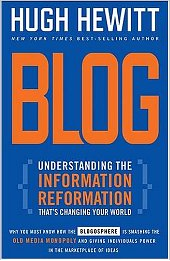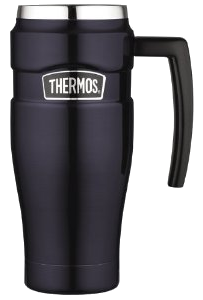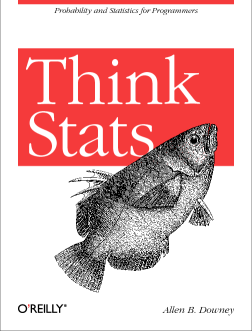I love this article on Neuroscience. It reminded me of all those articles written by Denyse O’Leary about Evolutionary Biology, another non-science “science”, IYKWIMAITYD I read You can say just about anything and no one can prove you wrong.
Category: General Page 29 of 116
I have a buddy named Eric in Indiana who believes there is an education bubble. He sent me an this article last week about how Seton Hall will lower their tuition to match that of Rutgers. This seems to be a theme that comes up more and more often. I am not a huge fan of Rick Perry, but his plan to provide a $10,000 Bachelors degree to qualifying Texans seems to be a stellar idea. If they could get rid of some of the goofy, politically correct curricula and replace it with something the is a little more market driven, our higher education system might start to improve. There is more to this story than just cost. Maybe too many people who would be better served in apprenticeships and community college go to four year colleges to get worthless degrees. Maybe some fields like Psychology would be better served through certification and apprenticeship programs than through traditional college degrees. I was gratified to see that one of my favorite authors, Charles Murray, is going to debate that topic in Chicago on October 12. I plan to start watching this topic a little more closely.
Eric is not what I would call a conspiracy theorist, but almost. I think his problem, if you want to call it a problem, is the same as mine–he knows what he believes and the things he believes are not based on the pop culture zeitgeist. We might be wrong, but it least we know what we believe and why we believe it. We are not EXACTLY on the same page on everything, but we are pretty close on a lot of things. He has a wonderful family, homeschools his kids, lives on a farm, works as an engineer, and does what he believes is right to a fault. He is a thoughtful, happy, but pretty intense guy. Come to think of it, I need to ask him to start doing a guest post for me here if he can ever spare the time. Eric?
Day 42 of 1000
Kelly does not know what to say when people ask her what is her major. The reply she gets when she tells them she is working on a Statistics degree is “What can you do with a degree in statistics?” It is generally a longer discussion than is called for in a “What’s your name? Where are you from? What’s your major?” kind of discussion. There are TONS of jobs available to Statistics majors, but even that is not the right answer in Kelly’s case. Kelly wants to go on to graduate school. She wanted a degree that would give her an advantage in graduate school that would also let her explore different application areas.
We talked to a number of professors who all said that Statistics is used everywhere and would be a wonderful option if she wanted to study History, Sociology, Biology, Engineering, Journalism, Education, Psychology, Political Science, Business Administration, or a staggeringly broad range of other fields. Kelly is not sure yet what she wants to study at the graduate level, but she has certainly done the homework to find an undergraduate degree that will give her flexibility.
Christian is in the same boat, but has a narrower range of interests for his graduate degree. He chose Applied Math because it provides a strong foundation to go on to graduate work in Math, Electrical Engineering, Physics, Computer Engineering, or some other similar field. He will have to take stuff like Statics, Dynamics, Strengths of Materials, Circuits, Thermodynamics as elective courses or his applied area, but that is what he likes.
On top of all that, Forbes put an article on their website in January of 2011 that ranked statisticians number four and mathematicians number two in terms of future job prospects. They ranked the jobs based on scores in five categories: Work environment, physical demands, stress, median income, and hiring outlook. I tell the kids to be gracious when a communications, education, or psychology major disses their degree.
I think the Kindle Fire is a huge winner, but I see that Nook Color has an advantage over both the iPad 2 and the Kindle Fire with one pretty significant feature: Expandable storage. The Nook Color has an SD Card slots that can take SD card of up to 32GB. I have used that feature a lot in both Android program development and general file access. Even though the iPad2 has up to 64GB, from this article, it appears there is not way to expand it. This is another area where the Kindle Fire comes up short. If the Nook Color and/or Kindle Fire come up with a way to attach external storage, a microphone and/or a camera via the USB and/or Bluetooth ports, they will be adding something great to their products. Of course, the Nook Color and Kindle Fire have the added advantages over the iPad2 of price, Android, and not being from Apple.
Day 38 of 1000
 I LOVE my Barnes and Noble Nook Color. It is easy to read, easy to program, easy to buy books, easy, easy, easy. It is not perfect. Email and web browsing is not particularly convenient. Still, I have found that my Nook Color is perfect for my treadmill time and walks in the neighborhood. It was, by far, the best Android Tablet deal on the market when I bought it this summer for $249 in Oregon (No sales tax!). I really want to support Barnes and Noble, too. It has been suggested that Barnes and Noble is our only hope as a national, bricks and mortar bookstore chain, so I want to buy my eBooks from them.
I LOVE my Barnes and Noble Nook Color. It is easy to read, easy to program, easy to buy books, easy, easy, easy. It is not perfect. Email and web browsing is not particularly convenient. Still, I have found that my Nook Color is perfect for my treadmill time and walks in the neighborhood. It was, by far, the best Android Tablet deal on the market when I bought it this summer for $249 in Oregon (No sales tax!). I really want to support Barnes and Noble, too. It has been suggested that Barnes and Noble is our only hope as a national, bricks and mortar bookstore chain, so I want to buy my eBooks from them.
 Amazon is making that a lot harder. Their new Kindle Fire is very close to the same size as the Nook Color, but with a lower price ($199) and a better processor. It does not appear to be jail broken yet, but it was just announced yesterday and will not start shipping to customers until November. It runs Android, so I assume it is just a matter of time before lots of people will be programming this thing. I have buddies inside the development effort at Amazon, have actually had a phone interview with some of the people who develop this device, and know they have staffed up to own this market. They have thrown a ton of resources at this product line. Those resources include some very good developers, some of them with skills to develop things that are not already in the Kindle Fire. I am a vision engineer and work with cameras. The kinds of people I know who work at Kindle have complementary skill sets. That the Kindle Fire does not have any cameras was a little bit of a surprise to me given what I know about who is working there. Could a camera enabled Amazon tablet with new and innovative functionality be on the drawing board. I am pretty suspicious.
Amazon is making that a lot harder. Their new Kindle Fire is very close to the same size as the Nook Color, but with a lower price ($199) and a better processor. It does not appear to be jail broken yet, but it was just announced yesterday and will not start shipping to customers until November. It runs Android, so I assume it is just a matter of time before lots of people will be programming this thing. I have buddies inside the development effort at Amazon, have actually had a phone interview with some of the people who develop this device, and know they have staffed up to own this market. They have thrown a ton of resources at this product line. Those resources include some very good developers, some of them with skills to develop things that are not already in the Kindle Fire. I am a vision engineer and work with cameras. The kinds of people I know who work at Kindle have complementary skill sets. That the Kindle Fire does not have any cameras was a little bit of a surprise to me given what I know about who is working there. Could a camera enabled Amazon tablet with new and innovative functionality be on the drawing board. I am pretty suspicious.
This is going to force the hands of both Barnes and Noble and Apple. Both of them have a lot to lose if this Kindle Fire is a success. Barnes and Noble for the previously stated reasons and Apple because Amazon has a lot more and a lot better stuff to sell on their tablet than is available for the iPad. That is especially true as more capable tablets continue to roll out from Amazon with cameras and other interesting sensing and input devices.
I am a huge fan of Michael Egnor., a neurosurgeon and relatively recent convert to Catholicism who writes on intelligent design and the mind/brain problem. I loved it when he started writing on the Discovery Institute‘s Evolution News and Views blog. Now he has started a blog of his own called Egnorance and he writes with a flamethrower. His latest post titled Who’s more hateful: the God-full or the godless? is a work of art and takes down this ridiculous article with ease. I urge you to bookmark his blog and visit it whenever you are feeling a little down about getting beat up for thoughtfully held Christian positions. Egnorance does not suffer fools. I am glad he is mostly on my side.
Day 37 of 1000
 I finished reading Hugh Hewitt‘s book, Blog Understanding the Information Reformation That’s Changing Your World. I liked the book a lot because it described some interesting events I watched closely at the time they were happening. I recommend it highly for those who want a description of the role of blogs during Rathergate, the Trent Lott take down, the Swiftboat Vets take down of John Kerry, and other similar events. It also describes the meltdown of the Main Stream Media (MSM) admirably. I hoped the book would describe some of the how-to’s with respect to blog traffic generation and how to run a blog, but that was not the focus of the book.
I finished reading Hugh Hewitt‘s book, Blog Understanding the Information Reformation That’s Changing Your World. I liked the book a lot because it described some interesting events I watched closely at the time they were happening. I recommend it highly for those who want a description of the role of blogs during Rathergate, the Trent Lott take down, the Swiftboat Vets take down of John Kerry, and other similar events. It also describes the meltdown of the Main Stream Media (MSM) admirably. I hoped the book would describe some of the how-to’s with respect to blog traffic generation and how to run a blog, but that was not the focus of the book.
The book is a fast, light read about how there is a sea-change taking place in the way news is reported, consumed, and corrected. It uses the advent of the printing press and its use during the Protestant Reformation in the conflict with the excesses of the Catholic Church as a very effective an analogy with what is happening with the Internet and blogs (the printing press), the Reformers (the bloggers), the Catholic Church (the MSM), and the powerless laity who no longer had to depend on the priesthood to get any understanding of the bible.
Hewitt made a point about the nature of the blogosphere that seems very obvious, but only after you hear it. He said the blogosphere is made up of a very small percentage of bloggers who are very big and get lots of hits and a large percentage of bloggers that, in real numbers, is huge who get a relative few number of visits per day, often consisting of friends and family. The large group of bloggers who have a relatively small number of visitors per day is called the tail. The predominant theme of the tail, if you can figure out what it is, is more important that the prominent theme of the big bloggers that get massive hits and visitors. He describes some of the ways he does that.
I am going to read another book on blogging next. I hope to find one that talks a little more about the how-to’s. After seven years of blogging with about 250 posts per year, I guess I could now call myself a committed blogger. Up until now, though, my writing has had the singular purpose of documenting our homeschool. Now I want to turn it into something else. I am in the process of defining what that is. It is definitely going to take some study and reflection.
Day 36 of 1000
I do not know whether Lorena just gets odd teachers, she brings out the strangeness in them, or just notices stuff that other people do not notice. She studies Financial Accounting this summer from a very highly rated professor. Lorena has attended class for a little over a month now. That I know so much about the guy and his mother boggles my mind. I know that he adores his 86 year old mother. I know that she loves Sunset Blush wine that she buys once per week by the case from Walmart, because they have the best prices. I know that when one of the guys who lived in the nursing home with her, left all his Sunset Blush wine to her when he died because he knew she liked it so much. I know the professor is a hardcore hockey fan who loves beer and hotdogs, but cannot drink as much beer or eat as many hotdogs because they exacerbate his gout.
All of that is really fun, but what is even cooler about this guy is that he has super high ratings from his students even though he piles on the homework and gives them hard tests. It is obvious that he loves his job, loves to be with the students, and takes his charge to teach them accounting very seriously. He takes time with students who are not getting the material, learns all their names within the first couple days of class, and does everything possible to make the class interesting and fun. I surely hope Lorena can get him Managerial Accounting next semester.
Lorena is a good student. She has studied at the community college just about everwhere we have lived–Florida, Oregon, and North Carolina. She made her way through all the English as a Second Language classes to pass College Composition and all the way from Algebra through her first semester of Calculus (all she needs for a Business Administration degree). She has to take some history, literature, and other general education credits in addition to some more business classes to get her Transfer Associate Degree so she can continue on to her Bachelors (and maybe Masters degree).
Day 36 of 1000
I do not know whether Lorena just gets odd teachers, she brings out the strangeness in them, or just notices stuff that other people do not notice. She studies Financial Accounting this summer from a very highly rated professor. Lorena has attended class for a little over a month now. That I know so much about the guy and his mother boggles my mind. I know that he adores his 86 year old mother. I know that she loves Sunset Blush wine that she buys once per week by the case from Walmart, because they have the best prices. I know that when one of the guys who lived in the nursing home with her, left all his Sunset Blush wine to her when he died because he knew she liked it so much. I know the professor is a hardcore hockey fan who loves beer and hotdogs, but cannot drink as much beer or eat as many hotdogs because they exacerbate his gout.
All of that is really fun, but what is even cooler about this guy is that he has super high ratings from his students even though he piles on the homework and gives them hard tests. It is obvious that he loves his job, loves to be with the students, and takes his charge to teach them accounting very seriously. He takes time with students who are not getting the material, learns all their names within the first couple days of class, and does everything possible to make the class interesting and fun. I surely hope Lorena can get him Managerial Accounting next semester.
Lorena is a good student. She has studied at the community college just about everwhere we have lived–Florida, Oregon, and North Carolina. She made her way through all the English as a Second Language classes to pass College Composition and all the way from Algebra through her first semester of Calculus (all she needs for a Business Administration degree). She has to take some history, literature, and other general education credits in addition to some more business classes to get her Transfer Associate Degree so she can continue on to her Bachelors (and maybe Masters degree).
It is very suspicious that I found my workout bag in the driver seat of my pickup this morning and I just got a text message from Lorena telling me not to forget to do my workout. I don’t suppose it had anything to do with the fact that I ate like a pig over the weekend and I could not get my shirt buttoned at the collar when I put on my tie.
Day 35 of 1000
 I am not one of those guys who hates birthdays and/or their age. I turned 56 on Saturday, a bunch of which I spent driving across the beautiful North Carolina countryside between Raleigh and Charlotte. It rained hard for about forty minutes of a four hour trip in that way that North Carolina’s understand and can handle, but that is completely foreign to us immigrants from the Willamette Valley in Oregon. Still, it was a great trip, especially with my new birthday travel mug (Thank you, Andrew! It really does keep coffee hot for six hours!). Still the rest of the trip was just perfect for driving. The kids worked on homework, slept some, and we talked a lot on both legs of the trip. It was very, very nice.
I am not one of those guys who hates birthdays and/or their age. I turned 56 on Saturday, a bunch of which I spent driving across the beautiful North Carolina countryside between Raleigh and Charlotte. It rained hard for about forty minutes of a four hour trip in that way that North Carolina’s understand and can handle, but that is completely foreign to us immigrants from the Willamette Valley in Oregon. Still, it was a great trip, especially with my new birthday travel mug (Thank you, Andrew! It really does keep coffee hot for six hours!). Still the rest of the trip was just perfect for driving. The kids worked on homework, slept some, and we talked a lot on both legs of the trip. It was very, very nice.
We went to a church convention. We meet lots of new people at those kinds of events and when people find out that Kelly is a statistics major, they invariably ask here what she will do with a statistics degree. It is a very good question. There are lots of opportunities for statisticians in lots of different fields (bioinformatics, economics, manufacturing, internet data mining, marketing, etc.). The problem is that, in Kelly’s case, this is the wrong question to ask. Kelly studies statistics as a base for a graduate degree. She has no plans to work as a statistician, but views statistics as a hard science degree that provides tools that are useful in whatever other field she might study whether it be marketing, political science, journalism, history, sociology, or any of a myriad of other fields that require statistics for their research.
lots of different fields (bioinformatics, economics, manufacturing, internet data mining, marketing, etc.). The problem is that, in Kelly’s case, this is the wrong question to ask. Kelly studies statistics as a base for a graduate degree. She has no plans to work as a statistician, but views statistics as a hard science degree that provides tools that are useful in whatever other field she might study whether it be marketing, political science, journalism, history, sociology, or any of a myriad of other fields that require statistics for their research.
Our buddy Andrew knows where Kelly wants to go with her degree, so he sent us this link. It is a book about statistics. More specifically, it is a book about how to use statistics in real-world situations. This is exactly what we talked about on our trip. Kelly’s desire is not to be a statistical guru, but to be a guru in some other field that interests here with a profound understanding of the use of statistics in that field. This book shows how to use a set of Python libraries to perform statistical analysis and present statistical data graphically. I downloaded the book, the data sets, and the example programs because it looked so interesting. I think Kelly will continue to work in R as that is a tool more commonly used in her world, but if this book is good enough, I will maybe walk through it with her during the summer.
Day 32 of 1000
 This blog is well over seven years old now. This is 1740th post. The only thing I wanted to do with this blog is keep a record of our homeschool. It has served its purpose quite well in that regard. I quit blogging for several months after the kids started college, but old habits die hard. The blog helps me focus my thoughts and efforts, I have a very small, but fairly active following, and I enjoy writing, so I thought I would refocus it on something new. I am writing 5-6 times per week again and enjoying myself, but the blog is a little unfocused.
This blog is well over seven years old now. This is 1740th post. The only thing I wanted to do with this blog is keep a record of our homeschool. It has served its purpose quite well in that regard. I quit blogging for several months after the kids started college, but old habits die hard. The blog helps me focus my thoughts and efforts, I have a very small, but fairly active following, and I enjoy writing, so I thought I would refocus it on something new. I am writing 5-6 times per week again and enjoying myself, but the blog is a little unfocused.
Reasonable Faith, the William Lane Craig book I read while I walk in the evenings is heavy reading so I though I would take a break and read something a little lighter. I have never really read anything about blogs and blogging although I follow a good number of blogs every day. I thought I might do some reading to help me find some focus. There is a list of books (click on the “Required Reading” tab here) for the Convergence Journalism program at the World Journalism Institute Kelly wants to join, some required, some optional. One of the optional books is Blog: Understanding the Information Reformation That’s Changing the World by Hugh Hewitt. That is the book I decided to read, so I downloaded it to my Nook Color Wednesday evening and have read about ninety pages so far.
I used to be a pretty big Hugh Hewitt fan. I enjoy his interview style more than just about any radio interviewer with the exception of Bill Bennett. I like the book OK and used to read his blog daily, but he has the same problem as his buddies at the Power Line Blog. He is a lawyer and has that lawyerly affection that permeates his interviews, writing, and radio commentary. Intellectual rigor in legal analysis is the domain of lawyers. There are two things in the book that reinforced my reasons for having deleted the bookmark to his blog from my browser. First, he is a hard-core establishment Republican, establishment Christian, establishment lawyer, and knee jerk Mitt Romney fan-boy. Second, he appears to believe the intellectual rigor required to be a lawyer somehow provides lawyers with analytical skills suited for interviewing skills, commentary, and research on topics for which lawyers are not trained. What he might not understand is that some of his commentary on non-lawyerly topics, in its naivete and establishment smugness, can probably only be appreciated by other lawyers while those with skills and training in those topics cringe. This is frustrating because my worldview is almost exactly the same as his on virtually everything else.
All that being said, I think he is a sincere and thoughtful man. I am enjoying the book and recommend, if for nothing else, as a historical record of some very cool events that mark the rise of the blog and the demise of the Main Stream Media.
Day 31 of 1000
Kelly needs to write and publish as many blog, newspaper, and magazine articles as possible to refine her skills: interviewing, writing, editing etc. She needs to build a portfolio to help her win future opportunities. Last week, she signed up with an organization whose charter is to help young journalists of a certain political bent (pretty much in line with Kelly’s bent) to hone their skills and prepare for careers in journalism. We were very surprised that a couple of days after she signed up, she got a call from one of the editors with an assignment. Actually, it was a very interesting assignment. Kelly and I will write more about this after we see if it comes to fruition, but both of us have been scrambling.
 Kelly has to contact and interview high mucky mucks and mucky muck wannabes in Washington D.C. by telephone. She needs to get some quotes so she wants to record the calls. The first thing we had to do was find out whether it is legal to record phone calls. It turns out that there are generally two kinds of laws that cover this sort of thing in the U.S. More than half the states have what is called “one-party consent” laws. That is, only one of the parties in a phone call has to consent for the call to be recorded. The rest of the states require that both parties to a call must give their consent for it to be legal to record. For interstate calls, it is best to err on the side of maximum disclosure. Fortunately, I found a website that shows that both Washington D.C. and North Carolina are both one-party consent states, so she does not have to declare that she is recording for this article.
Kelly has to contact and interview high mucky mucks and mucky muck wannabes in Washington D.C. by telephone. She needs to get some quotes so she wants to record the calls. The first thing we had to do was find out whether it is legal to record phone calls. It turns out that there are generally two kinds of laws that cover this sort of thing in the U.S. More than half the states have what is called “one-party consent” laws. That is, only one of the parties in a phone call has to consent for the call to be recorded. The rest of the states require that both parties to a call must give their consent for it to be legal to record. For interstate calls, it is best to err on the side of maximum disclosure. Fortunately, I found a website that shows that both Washington D.C. and North Carolina are both one-party consent states, so she does not have to declare that she is recording for this article.
Next we had to find a recording device. We have the great “professional journalist” recorder on its way. Unfortunately, the recorder is not scheduled to arrive for a few more days, so Kelly will use her laptop as a recorder until then. I had to find a device that would get the stuff going into and out of the phone into the recording device. We found the EXACT right device down at Radio Shack. It is the Olympus TP-7 Telephone Recording Device pictured at the left. Lorena and I ran down to pick it up while the kids studied after dinner, but Christian and I could not figure out how the silly thing worked. It seems like a device like this would require at least two plugs: one for the recording device and one for the phone. As you can see, it only has one.
After about fifteen minutes we gave up and read the instructions. All you do is plug the jack into the recording device and put the ear plug in your ear. If you look closely, you can see that there is a little microphone on the opposite side of the ear plug from the end that goes into your ear. When you hold your phone up to your ear, both ends of the conversation go into the microphone where the signal is sent down the cable to the recording device and through the earplug speaker into your ear. It works AWESOME.
We will keep you posted on how Kelly’s new writing gig works out if and when it comes to fruition.
Radio station note: The person who called Kelly into the interview at the radio station got laid off so Kelly is in limbo with respect to her radio station internship. She already jumped through all the required hoops at her school–they will give her credit for the internship spring semester, but now she has to figure out whether they still want her. She sent an email to one of the hosts. We will keep you posted on that, too.
Day 30 of 1000
Kelly’s education plan has started to solidify. The end goal is to get into the best Journalism Masters Degree program possible. Her planned undergraduate degree is Statistics, so that means she will have to work pretty hard to get some Journalism experience if she wants to make the jump from hard science/math to a social science. She wants to go to the World Journalism Institute as part of that plan. The program is called Convergence Course: Backpack Journalism in a Digital Age. The thing that is cool about it is that it covers a bunch of different types of media that requires a bunch of different types of technology. There is a whole web page that describes what is required.
 You can see the required list of equipment and software if you click on the “Required hardware/software” tab of the course webpage. I do not want to steal her thunder so I will let her describe what she is doing over on her blog when she gets to it.
You can see the required list of equipment and software if you click on the “Required hardware/software” tab of the course webpage. I do not want to steal her thunder so I will let her describe what she is doing over on her blog when she gets to it.
The reason I brought all this up is that have been forced into buying some cool new technology that I could in no other way justify. We decided to purchase some of the stuff now, so she could start practicing. There is a bunch of software, a lot of which we already have, but there are two fairly big hardware items other than the computer that we felt like she could use to help her prepare some of the materials required to get accepted into the class. They turned out to be way neater than I expected. The first is a professional reporters portable voice recorder. We got one of the ones they recommended which is shown to the left. It is called a Zoom H2 and has more features than I would have thought possible for a simple voice recorder.
some of the materials required to get accepted into the class. They turned out to be way neater than I expected. The first is a professional reporters portable voice recorder. We got one of the ones they recommended which is shown to the left. It is called a Zoom H2 and has more features than I would have thought possible for a simple voice recorder.
The other item is a portable video camera that is just as cool. It is the Aiptek A-HD+ 1080P Digital Camcorder pictured at the right. We have enough software to get her going with these two devices, but she will need to buy more if she gets into the course. All of these devices require SD cards so I bought one additional 8GB card, but I think I am going to buy one or two more after that. We thought it would be a great idea for her to have them now so she could practice with them for a few months and generate the blog posts she needs to even be able to apply for the program.
I think I am more excited than Kelly. I hope she lets me play with this stuff a little.
Day 29 of 1000
I walk around my neighborhood most nights for forty minutes or so. There is a loop that is almost exactly one mile, so I go at least two laps. I need to kick it up a notch to 3-5 laps like I did most of the summer. I listened to podcasts and audio books on my Zen Stone Plus (awesome product, but we think the SanDisk Sansa Clip+ is even better) as I walked, but wanted a change, so I decided to try to read my Nook Color Android Tablet instead. It is a quiet neighborhood with not too much traffic, so it has worked at pretty well. I have met a lot more of my neighbors because of my walks than in the previous three years. I like it a lot.
I am currently reading William Lane Craig‘s Reasonable Faith while I walk. I am a little over a quarter of the way through the book. Up until last night, the book covered Christian philosophers (Augustine, Aquinas, through Barth, Bultmann, Plantinga, etc.) and their proofs for the existence of God. It is an area where I had not previously done a lot of reading, so it was very interesting. It is not light reading and I am sure I would have been completely lost if it were not for Craig’s clear prose. It is impressive that there is such an ancient, clear defense for the existence of God. While you cannot do justice to such a large topic in a single book chapter, Craig does an admirable job of hitting the high points and laying out the big picture.
Last night, I got to the section that covers the Kalam Cosmological Argument and other arguments that engage with empirical cosmological work performed by Einstein, Hawking, Guth, and other physicists and mathematicians. It was a pretty heavy read, too, but Craig made it tractable. It was dark and the stars were out during the second half of my walk. He covers the life of the universe from the Big Bang and Planck time to heat death. He explains why neither an actual infinite nor an infinite regress of events is possible. He talks about the fact that one can not really talk about what happened before the Big Bang in a temporal sense because time and space did not exist until the Big Bang. He explained that the expansion of the universe is not expansion of material into new areas of space, but the expansion of space itself. All these topics and much more provide a foundation for Craig’s vigorous and rigorous defense of a couple arguments for the existence of God.
Walking in the dark with the stars overhead, this all made me feel very small and insignificant. Maybe it gave me a little more appreciation for the greatness of God.
Day 28 of 1000
Steven Brill is a liberal guy who wrote a book about government schools in a America. Bill Bennett had him on his morning talk show this morning. Both Bennett and Brill agreed that (very roughly), about one third of the teachers in a school are great, about one third are adequate, and about one third are mediocre with one fourth of the last category that should be replaced because they are pretty much worthless. Then Brill made the point that every fourth grade teacher in an elementary school knows which third grade teacher is not doing her job. That is a very astute observation that might be worth some research. I am trying to think about this kind of thing in terms of how to improve the education system and is not just as another reason to homeschool. I do not believe any more than five percent of the population will ever homeschool, so we need to figure out how to make our education system work.
He also made the point that a lot of money gets sucked up by duplication of administration. His point was that when there are many small school districts, money unnecessarily goes to Superintendents, sub-superintendents, transportation system duplication, etc. While this is true, it completely misses the point. This Heritage Foundation report shows money is not the problem. For me, the only take-away from the comments made by Brill is that the system is not just broken, but very broken. The answer to this problem requires more than just shuffling money and control around within the government school system. It requires something like the bold experiment currently under way in Indiana. But that is a discussion for another day.
I love Otis Redding. I listen to him quite a lot these days on Pandora. Pandora (the subscription my niece gave me was my best Christmas present, ever) selects songs that are similar to the songs you have already identified that you like and then plays them to give you an opportunity. This morning, they played a cover of an old Otis Redding song titled These Arms of Mine by Tab Benoit and Jimmy Thackery. If you like Otis Redding and blues ballads, it does not get much better than this. Tab Benoit is amazing.
Tab Benoit & Jimmy Thackery LRBC 06 ” These Arms Of Mine “
Day 26 of 1000
We made a pretty big break-through in our thousand day plan yesterday. For the kids that plan entails, not only getting an undergraduate degree in something hard, but doing other stuff that will help them get a job in something they love when they are out of school. The kids both know what they want to do. I believe that is a gift; I certainly did not know what I wanted to do when I was their age. Christian has had some amazing opportunities along that should help lead him where he wants to go–acceptance into college at age 14, an amazing engineering internship, volunteer research at the NCSU BAE lab among other things.
Kelly, even though she knows what she wants to do and has pushed hard to get there, has really not had as many breakthrough opportunities. I have not known what to tell her, so when she gets a little discouraged, I tell her to keep pushing and things will happen. I tell them that at the end of every semester when there is not enough time for all the tests, reports, speeches, and homework. Just keep pushing to the end and it will end well. All of us have to do that. Four people pushing is better than one.
Kelly has kept pushing and we have had our little breakthroughs–work as a reporter on the school paper, an opportunity to write some articles for her hometown paper, her comic strip. We have hope now that something bigger is happening. She sent in a resume on Thursday and had a great interview on Friday for an internship that will take place either through this semester or fall semester if we can get all the paperwork and approvals worked out at the school. If we keep working hard to make it work, more opportunities will present themselves. I will talk more about this great opportunity when I can.
It surely feels like we are returning to a more normal life. Kelly, Christian, and I sit here at the NCSU Hill Library (need I rave anymore about what a great place it is to sit, drink coffee, work, and watch people on a Saturday morning), the kids hard at work on research for papers they have to write while I work on a side machine vision programming project for which I hope to receive payment in the form of a computer for Christian. Lorena is off at CostCo, buying food for the week. This kind of work is really a joy to me. Actually, it is a joy to all of us. Writing code to the sound of Jerry Garcia singing Ripple on Pandora. Good stuff.
Garcia/Grisman – Ripple – Warfield Theater – 12/08/91
Day 25 of 1000
My daughter, Kelly, wants to work as a journalist. We both agree a that a journalism (or any other liberal arts) undergraduate degree is not the best way to learn anything of value, especially in a government run school. So she wants to get as much journalism experience as possible as she works her way through a math and/or statistics degree*. She works as a reporter on the staff of the community college newspaper, writes in her blog 3-4 days per week, practices her cartoons and caricatures, and plans to apply for some summer programs like the World Journalism Institute to get need experience for entry into a Journalism Masters Degree. She needs to get as much media experience as possible so when she heard about a job as an intern at a local radio station, she applied for the job. The show producer wrote an email back to her about 15 minutes after she sent in her resume and cover letter. She just texted me that she is walking into the interview right now and will call me back as soon as it is over.
*She and I think that statistics might be a good base for a lot of things journalists need to understand. Things like political polling, consumer confidence, internet popularity, and all different kinds of research (sociology, psychology, economics, climate, education) require a good understanding of statistics. She will be able to study sample survey methodology, experimental design, trend analysis and a bunch of other topics important to a lot of things she might report.

